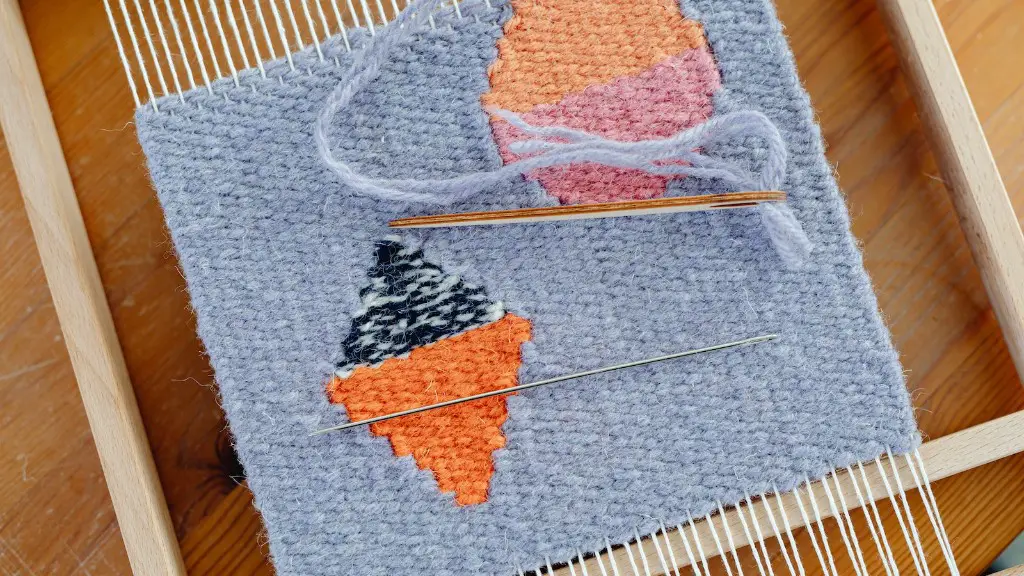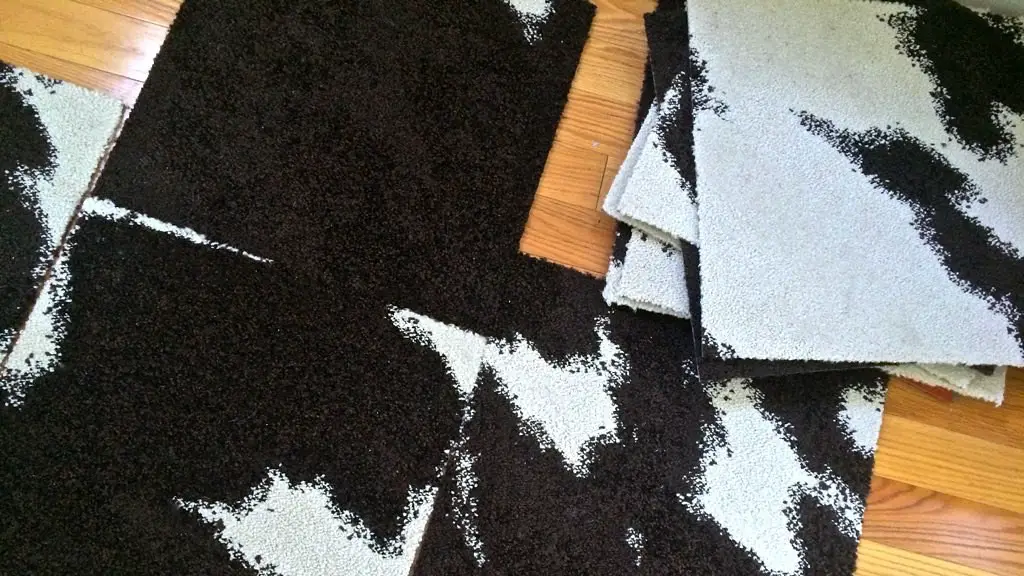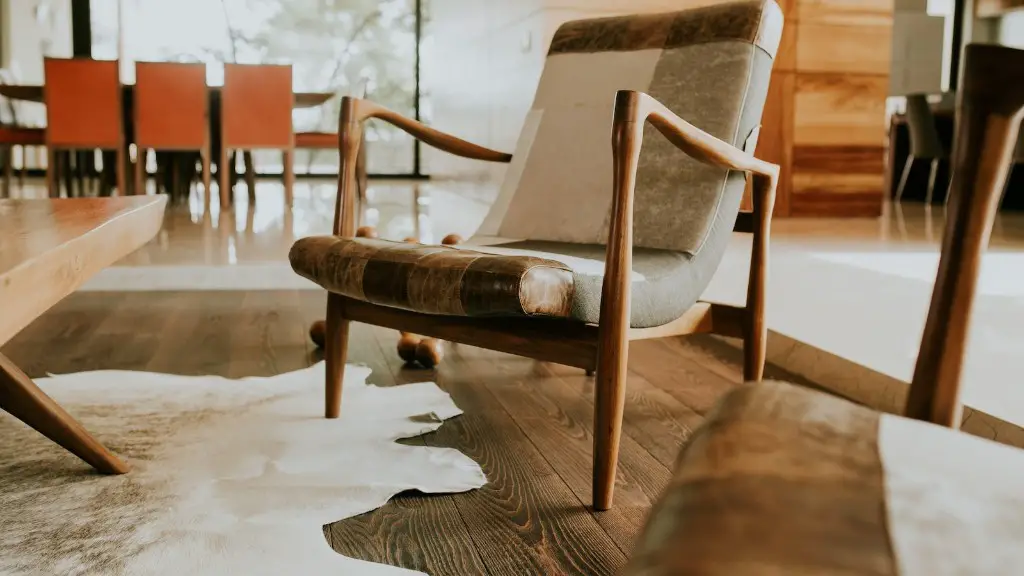If you have mouse urine on your carpet, there are a few things you can do to remove it. You can use a paper towel to blot up as much urine as possible. You can also use a vacuum cleaner to suck up any remaining urine. If the urine has dried, you can try using a steam cleaner or a hot water extractor.
To remove mouse urine from carpet, soak up the urine with a paper towel or clean cloth. Then, mix equal parts white vinegar and water in a bowl. Use a spray bottle to apply the mixture to the affected area, and scrub the area with a brush. Rinse the area with clean water, and blot it dry with a clean towel.
How do you get rid of mouse urine stains?
To clean your kitchen countertop, mix 1 tablespoon of dish-washing liquid with 2 cups of cold water in a small bowl. Add 1 tablespoon of vinegar (to disinfect the area and break down the acid) to the solution and gently stir. Dip a clean microfiber cloth into the solution.
If you are cleaning up after a pet, it is important to disinfect the area to prevent the spread of disease. Urine, droppings, and nesting materials can all harbor bacteria and viruses, so it is important to clean them thoroughly.
One way to do this is to dampen the materials with a commercial disinfectant or a mixture of bleach and water. The bleach and water mixture should be made with 1 part bleach to 9 parts water. Let the materials soak for at least 5 minutes to ensure that the bacteria are killed.
If you are using a commercial disinfectant, follow the manufacturer’s instructions on the label for dilution, disinfection time, and safe use.
Will the smell of mouse urine ever go away
If there are still mice hiding in your house, it doesn’t matter what you do to get rid of the stench: it’ll keep coming back. Apply animal stain disinfectant to the affected area, or steam clean the area. Use another odor-neutralizing product if the smell remains, like baking soda or activated charcoal.
If you see dry, crusty yellow stains that emit an ammonia-like smell, it is likely mouse urine. The appearance of mouse urine stains will vary depending on the surface. For example, if they urinate on a clean white cloth, you will easily see small yellow stains.
Can you get sick from old mouse urine?
Hantavirus infection can occur when people come in contact with rodent droppings, urine, saliva, or nesting materials. The virus is spread when virus-containing particles from rodent urine, droppings, or saliva are stirred into the air. People who are exposed to these particles can develop hantavirus pulmonary syndrome, a serious and potentially fatal illness.
HPS is a serious, life-threatening disease that is caused by hantaviruses. These viruses are typically found in rodents, and people can become infected when they breathe in the virus particles that are present in the rodents’ urine and droppings. HPS can also occur when people come into contact with mouse or rat urine, droppings, or nesting materials that contain the virus, and then touch their eyes, nose, or mouth. Symptoms of HPS include fever, headache, muscle aches, nausea, vomiting, and diarrhea. If you think you may have been exposed to a hantavirus, it is important to seek medical attention immediately.
Does Lysol disinfect mouse droppings?
A mixture of 1½ cups of bleach or Lysol in a gallon of water can effectively kill the virus. Allow the solution to sit for 15 minutes before cleaning up with a mop or sponge. Spray rodent carcasses, nests, droppings, and other potentially contaminated items and surfaces with bleach or disinfectant.
It is important to never vacuum or sweep droppings, nests or dead mice as this can create dust that can be inhaled. The dust may contain Hantavirus, which can be dangerous to humans.
Does Lysol spray get rid of mice
A bleach solution or Lysol-like spray can be used to clean surfaces and disinfect them. Nichol said that this is a good method to use to clean and disinfect surfaces.
If you find mouse urine or droppings in your home, you can clean it up with a bleach and water solution. This will remove any smell coming from that area. Alternatively, you can use baking soda to remove the smell from the air.
Does mouse urine attract more mice?
Researchers have discovered that male mice produce a protein in their urine that is addictive to other mice. This protein triggers a repetitive behavior in which the mice will return to spots where they have found the excretions. It is not clear why the protein has this effect, but it may be related to the way that mice communicate with each other.
The virus may remain infectious for 2 to 3 days at room temperature. Exposure to sunlight will decrease the time of viability and freezing temperatures will increase the time that the virus remains infectious.
What color is mouse urine when it dries
Rodent urine fluoresces blue-white to yellow-white when dry, bluer when fresh and becoming paler with age. This is caused by the presence of certain substances in the urine, which emit light when exposed to ultraviolet (UV) light. Fluorescence can be used to identify the presence of rodents, and to determine the freshness of their urine.
Between dusk and dawn, mice are most active. They don’t usually like bright lights, but may sometimes be seen during the day if their nest has been disturbed or they are seeking food. Seeing them in the day can also indicate a large infestation in a home.
Where do mice hide during the day?
House mice are nocturnal animals, meaning they are most active at night. However, they will occasionally come out during the day to forage for food. When they are not active, they prefer to hide in cool, dark places. The most common areas they like to hide are in between walls, pantries, cupboards, sofas, old boxes, and other similar areas wherein they would not be disturbed.
There are a few early symptoms of the coronavirus that are common among patients. These include fatigue, fever, and muscle aches. These symptoms are universal, meaning that they can affect anyone who contracts the virus. There may also be headaches, dizziness, chills, and abdominal problems, such as nausea, vomiting, diarrhea, and abdominal pain.
How long does hantavirus live in carpet
HPS is a serious lung disease caused by hantaviruses. These viruses are carried by rodents, and humans can become infected if they breathe in contaminated dust from rodent droppings or urine. HPS is rare, but it can be fatal. The virus does not remain active for long once outside of its host, so there is no risk of infection from casual contact with rodents or their droppings. However, it is important to take precautions if you are cleaning an area where rodents have been present, to avoid inhaling dust that may be contaminated with the virus.
Hantavirus infections are rare. Sporadic (single) cases may occur throughout the country, but most, greater than 90%, of the cases have occurred in the west of the Mississippi River.
Warp Up
First, identify the soiled areas of the carpet. Then, using a clean white cloth, blot the stain with a mixture of warm water and dish soap. Next, using a clean dry cloth, blot the area to remove any excess water. Finally, apply a carpet cleaner formulated for pet stains and allow it to dry completely.
To remove mouse urine from carpet, use a strong cleaning solution and a scrub brush. Be sure to rinse the area thoroughly with clean water to remove all traces of the urine.





